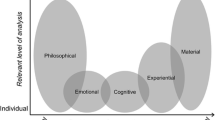Abstract
‘Community geography’ is a growing sub-field that leverages academic resources to facilitate spatial research in partnership with local communities. The Mapping Prejudice Project and the CREATE Initiative, two interdisciplinary projects at the University of Minnesota, demonstrate some of the opportunities and challenges associated with practicing community geography. Mapping Prejudice is leveraging community crowdsourcing to build the first comprehensive spatial database of racially restrictive housing covenants in the United States. CREATE is co-developing research on critical problems at the intersection of environment and equity through collaboration with community partners. These two projects incorporate a methodological commitment to place-based and historically grounded research that seeks to make knowledge in—and in relation to—a specific place. Incorporating earlier feminist and critical GIS theory, these projects have adopted an iterative research model that places under-resourced communities at the forefront of the research process. Their work produces a fluid, responsive, and co-creative approach that has the capacity to legitimate its knowledge claims through responsiveness to community needs and collective experience.
Similar content being viewed by others
References
Block, D. R., Hague, E., Curran, W., & Rosing, H. (2017). Measuring community and university impacts of critical civic geography: Insights from Chicago. The Professional Geographer, 70(2), 284–290.
Bunge, W. (1971). Fitzgerald; Geography of a revolution. Cambridge, MA: Schenkman Pub. (distributed by General Learning Press, Morristown, NJ).
Chin, J., Hollingshead, A., & Phillips, S. (2011). Racial disparities in homeownership: A report prepared for the Minneapolis urban league. Hubert H. Humphrey School of Public Affairs. Retrieved from the University of Minnesota Digital Conservancy http://hdl.handle.net/11299/107514.
Derickson, K., & Mackinnon, D. (2015). Toward an interim politics of resourcefulness for the anthropocene. Annals of the Association of American Geographers, 105(2), 304–312.
Elwood, S. (2001). GIS and collaborative urban governance: Understanding their implications for community action and power. Urban Geography, 22(8), 737–759.
Elwood, S., & Leszczynski, A. (2013). New spatial media, new knowledge politics. Transactions of the Institute of British Geographers, 38(4), 544–559.
Harvey, D. (1984). On the history and present condition of geography: An historical materialist manifesto. The Professional Geographer, 36(1), 1–11.
Hawthorne, T., & Jarrett, O. (2018). Developing the next generation of community-based scholars. The Professional Geographer, 70(2), 291–297.
Katz, C. (1992). All the world is staged—Intellectuals and the projects of ethnography. Environment And Planning D-Society & Space, 10(5), 495–510.
Kwan, M. (2002). Feminist visualization: Re-envisioning GIS as a method in feminist geographic research. Annals of the Association of American Geographers, 92(4), 645–661.
Mclafferty, S. (2002). Mapping women’s worlds: Knowledge, power and the bounds of GIS. Gender, Place & Culture, 9(3), 263–269.
Pavlovskaya, M. (2018). Critical GIS as a tool for social transformation. Canadian Geographer/Le Géographe Canadien, 62(1), 40–54.
Pavlovskaya, M., & Martin, K. (2007). Feminism and geographic information systems: From a missing object to a mapping subject. Geography Compass, 1(3), 583–606.
Robinson, J. (2010). Syracuse community geography: Evaluating a new approach to public participation geographic information systems. Doctor of Philosophy, University of North Carolina at Chapel Hill.
Robinson, J. A., Block, D., & Rees, A. (2017). Community geography: Addressing barriers in public participation GIS. The Cartographic Journal, 54(1), 5–13.
Robinson, J., & Hawthorne, T. (2018). Making space for community-engaged scholarship in geography. The Professional Geographer, 70(2), 277–283.
Rose, G. (1993). Feminism and geography : The limits of geographical knowledge. Minneapolis: University of Minnesota Press.
Schuurman, N., & Pratt, G. (2002). Care of the subject: Feminism and critiques of GIS. Gender, Place & Culture, 9(3), 291–299.
Shannon, J. (2016). Beyond the supermarket solution: Linking food deserts, neighborhood context, and everyday mobility. Annals of the American Association of Geographers, 106(1), 186–202.
Shannon, J., & Walker, K. (2018). Opening GIScience: A process-based approach. International Journal of Geographical Information Science, 32(10), 1911–1926.
Winling, L. (2018). Building the ivory tower : Universities and metropolitan development in the twentieth century (Politics and culture in modern America). Philadelphia: University of Pennsylvania Press.
Author information
Authors and Affiliations
Corresponding author
Ethics declarations
Conflict of interest
The authors declare that they have no conflicts of interest.
Human and animals rights
This article does not contain any studies with human participants or animals performed by any of the authors.
Additional information
Publisher's Note
Springer Nature remains neutral with regard to jurisdictional claims in published maps and institutional affiliations.
Rights and permissions
About this article
Cite this article
Ehrman-Solberg, K., Keeler, B., Derickson, K. et al. Mapping a path towards equity: reflections on a co-creative community praxis. GeoJournal 87 (Suppl 2), 185–194 (2022). https://doi.org/10.1007/s10708-020-10294-1
Accepted:
Published:
Issue Date:
DOI: https://doi.org/10.1007/s10708-020-10294-1



